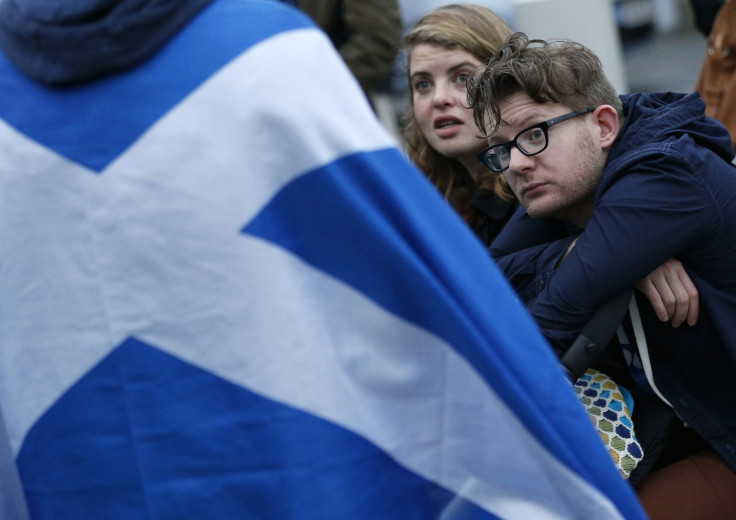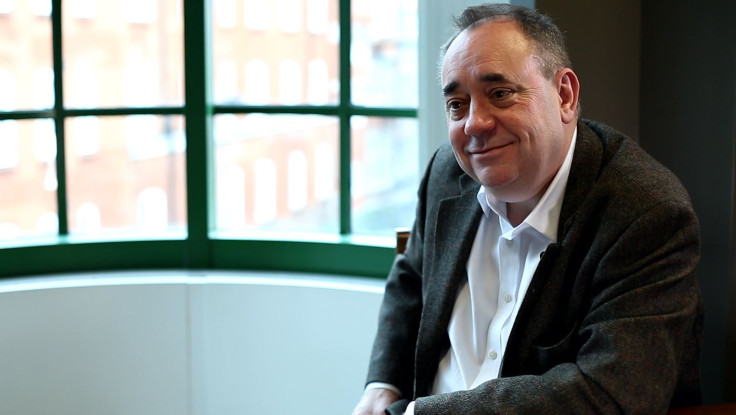Scotland's political parties are right to lead public opinion on 16-year-old voters

We don't believe in universal suffrage in the UK. I'm sorry to say that's even the case in progressive Scotland, where so far it's been considered unthinkable for the SNP to propose lifting the complete "civic death" that strips convicted prisoners of their voting rights. Our unspoken assumption is that, unlike in countries such as Canada, voting is not an inalienable right, but a privilege that can and must be withheld from the unworthy.
But here's the puzzle - if an inability to vote is a marker of society's opprobrium, what message do we think we're sending out to young citizens with a spotless criminal record, who we enthusiastically lump in with rapists and murderers as the 'lowlife' deemed unworthy of participating in elections?
A recent Panelbase poll discovered that a narrow majority of respondents in Scotland continue to support the withholding of democratic rights from 16 and 17-year-olds. That's in spite of the clear demonstration at the independence referendum that, oddly enough, the sun does not fall out of the sky when young people are given a say on their own future, and the Earth does not desist from spinning on its axis.
Unsurprisingly, though, Panelbase also found that voters in the rest of the UK, who haven't gone through that recent experience, are opposed to votes at 16 by a far more decisive margin. So there's no real doubt that the one-off extension of the franchise for the referendum has, at long last, moved the debate forward in Scotland.
Even more important than the shift in public opinion has been the sea-change in attitudes among the unionist parties, who are suddenly queuing up to support the SNP's demand that the voting age for devolved elections in Scotland be reduced in time for the May 2016 contest. The Scottish Tory leader, Ruth Davidson, has been particularly effusive about the exemplary way in which young people conducted themselves during the referendum, and their contribution to the greatest festival of democracy these islands have ever seen.
But it was a very different story three years ago. Sneering unionist commentators professed to be baffled by the very idea of giving "children" the vote. The SNP couldn't possibly think there was any credible justification for this nonsense, so what were the cunning separatists playing at this time? Perhaps they were just making an "impossible" demand that would be dropped in exchange for whatever it was they really wanted.
Except that theory didn't work, because the SNP played hardball and secured the UK government's agreement for an extension of the franchise. OK, so in that case, it must be because they thought immature "children" were easily led, and would flock to the Yes banner without a moment's thought.

I suspect there are some people who now cringe with embarrassment when they think back to the glee with which they pounced on every supposed scrap of polling evidence that Alex Salmond's "wheeze" might yet "backfire". Because in retrospect the referendum franchise does not look, as they thought it would, like a botched attempt at gerrymandering a single election through the recruitment of children, but instead like a historic breakthrough for an idea whose time has come.
No sense
In truth, the dismissal of 16 and 17 year olds as mere children never made any logical sense. They may be technically defined as children by international convention to protect them from cruelty, but that doesn't stop us conferring upon them most of the rights and responsibilities of adulthood. They can get married, consent to have sex, be required to pay tax, or even become a company director. These are not options and duties we give to people we think lack the intelligence to make considered decisions.
So if we think they're mature enough, the only conceivable rationale for denying them the vote is that we're somehow disturbed by the notion that "they" can make decisions that affect "us", just as we are in the case of hardened criminals.
Even so, if that's the way people feel, isn't it simply democratic to leave the rules as they are? Hmmm. Allowing one group of people the right to decide by a majority vote whether another group of people should be able to vote at all probably isn't the finest advert for the democratic principle. One of the most grotesque votes in modern history occurred in 1971, when the all-male Swiss electorate were asked to decide whether women should be allowed to vote in future. Quite understandably, they were fully expected to reject the idea, because after all what self-interested individual is going to volunteer to cut his own voting power in half?
To their credit, Swiss men defied the predictions, albeit possibly only due to the acute embarrassment of living in a country that was decades behind all its neighbours in the realm of gender equality.
I don't want to live in a country that waits decades to catch up with others in respect of political equality for young people. Already, countries like Austria and Brazil have unconditionally lowered the voting age to 16, as have British dependencies such as Jersey. Even the most powerful politician on the planet owes his position partly to under-18s, because around half of US states allow 17-year-olds to vote in presidential primary elections.
So it's entirely appropriate that Scotland's political leaders are seeking to lead public opinion on this topic, rather than be a slave to it. Exactly the same thing will have to happen one day in respect of prisoners' voting rights, if we are ever to attain authentic universal suffrage, as is surely our destiny. But I suspect that kind of political bravery may be a while off yet.
Mini-bio : James Kelly is author of the Scottish pro-independence blog, SCOT goes POP! Voted one of the UK's top political bloggers, you can hear more from James on Twitter:@JamesKelly
© Copyright IBTimes 2025. All rights reserved.





















